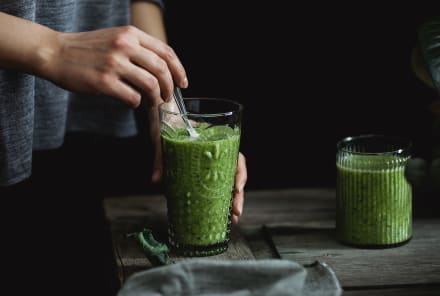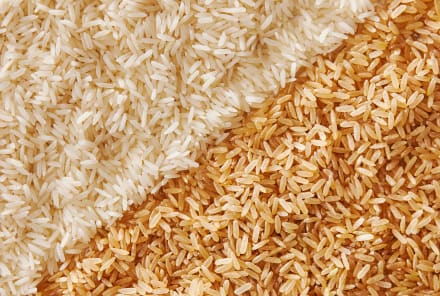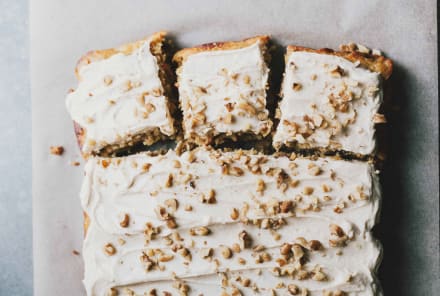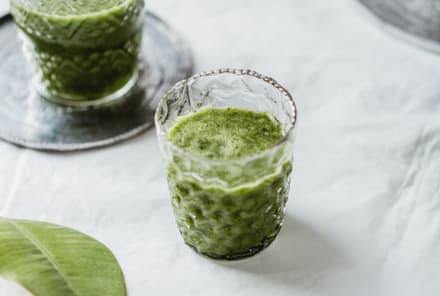Advertisement
I'm A Gut Doctor: If You're Not Doing This, You're Missing Out On Benefits

Hannah Frye is the Assistant Beauty Editor at mindbodygreen. She has a B.S. in journalism and a minor in women’s, gender, and queer studies from California Polytechnic State University, San Luis Obispo. Hannah has written across lifestyle sections including health, wellness, sustainability, personal development, and more.
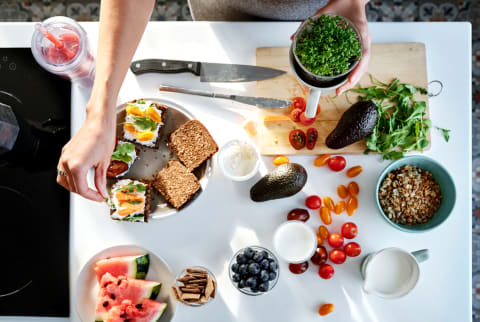
Behold: an easy, affordable DIY project with incredible benefits for your gut health. Count us in, right? We talked with gastroenterologist Will Bulsiewicz, M.D., MSCI, author of The Fiber-Fueled Cookbook, on a recent episode of the mindbodygreen podcast, and he told us about the DIY planting project that he thinks everyone should be doing. "If you're not sprouting, you should be," he says.
What is sprouting?
So what is sprouting exactly? Well, it's precisely what it sounds like: Sprouting is the process of growing edible sprouts from beans and legumes. Specifically, Bulsiewicz is referring to the easy, indoor-friendly method of using jars or bags to grow your sprouts—no soil necessary. "It's literally the freshest food on the planet because there is zero time-lapse between when you harvest and when you consume," Bulsiewicz says.
The gut health benefits.
Sprouting takes the nutrient profile of your beans and legumes to the next level. "It increases the fiber, it increases the protein, it increases the vitamins, and they also will take on these [therapeutic] properties," Bulsiewicz says. For example, sprouted lentils have twice the antioxidant content1 as unsprouted, and broccoli sprouts contain higher amounts of the antioxidant sulforaphane than the mature broccoli plant.
One study even showed that sulforaphane from broccoli sprouts activated enzymes in the body that picked up pollutants from the bloodstream and flushed them out via urine—talk about a natural detoxifier.
But perhaps the best part about sprouting is that it's fairly accessible. Not only is sprouting less expensive than growing many other foods at home, but it also takes hardly any space or materials. "You could live in Manhattan and have a 400-square-foot apartment. And guess what? All you need is 1 square foot on your kitchen counter. That's it," he notes.
If you want to try out sprouting for yourself, here's a simple how-to guide for sprouting your beans and legumes at home.
The takeaway.
Sprouting boasts tons of benefits. Not only are sprouts incredibly nutritious, but the process of growing them is easy, relatively inexpensive, and only requires a few minutes of care. Sprouts are just one of the many foods that can kick-start good gut health; you can read about the other items Bulsiewicz swears by here.
Watch Next
Enjoy some of our favorite clips from classes
Enjoy some of our favorite clips from classes
What Is Meditation?
Mindfulness/Spirituality | Light Watkins
Box Breathing
Mindfulness/Spirituality | Gwen Dittmar
What Breathwork Can Address
Mindfulness/Spirituality | Gwen Dittmar
The 8 Limbs of Yoga - What is Asana?
Yoga | Caley Alyssa
Two Standing Postures to Open Up Tight Hips
Yoga | Caley Alyssa
How Plants Can Optimize Athletic Performance
Nutrition | Rich Roll
What to Eat Before a Workout
Nutrition | Rich Roll
How Ayurveda Helps Us Navigate Modern Life
Nutrition | Sahara Rose
Messages About Love & Relationships
Love & Relationships | Esther Perel
Love Languages
Love & Relationships | Esther Perel


